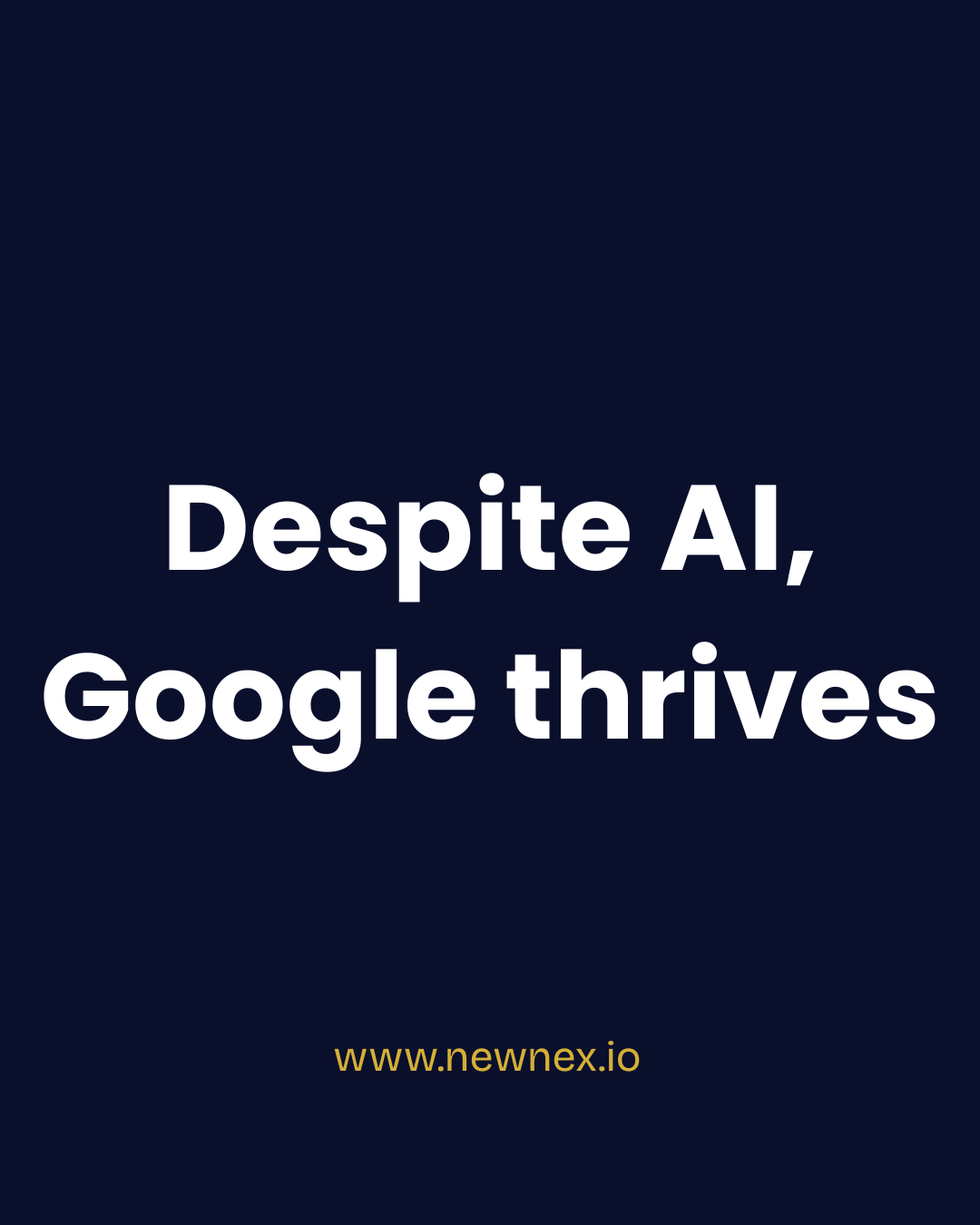Despite concerns of a click-based collapse, Google’s ad revenues are rising with AI, even as publishers feel the squeeze
In the age of AI-powered search, a paradox has emerged at the heart of the digital ecosystem. While many predicted that generative AI would undermine Google's lucrative ad business by reducing clicks, the tech giant's financial performance suggests the opposite. As Google's ad revenues continue to grow, the broader web, including publishers who provide the content, is experiencing a sharp decline in traffic. This raises a fundamental question about who benefits—and who loses—in an AI-first future.
Google’s earnings defy the doomsayers
Google's Q2 2025 earnings report provided a clear-eyed view of its performance, revealing that AI integration is bolstering, not beating, its advertising business. Parent company Alphabet reported robust results, with ad revenues up 10% year-over-year to $71 billion, exceeding analyst expectations. CEO Sundar Pichai directly attributed this strength to the company's "strategic investments in AI and video".
The key to this success lies in Google's ability to monetize its new AI features, such as AI Overviews and AI Mode. Despite the shift toward instant, AI-generated answers, Google claims that AI Overviews generate ad revenue at a comparable rate to traditional search results. It achieves this by conducting controlled experiments and measuring overall business value rather than focusing solely on individual clicks.
The rising engagement fueling commercial queries
Google reports that its AI-powered features are driving higher user engagement and query volume. In AI Mode, users ask questions that are up to twice as long as standard search queries. This creates new opportunities for advertisers, as the system can identify "faceted" or layered commercial intent within a single, complex question. For instance, a search for "how to fix a green pool" could trigger contextually relevant ads for "pool vacuum cleaners".
This automation has proven effective. Early beta tests of "AI Max for Search" have resulted in an average 27% increase in conversions for advertisers, highlighting the shift toward AI-powered targeting solutions.
A grim reality for publishers
While Google thrives, the publishers who create the content that fuels Google's AI are struggling. With AI Overviews providing direct answers, the incentive for users to click on external links has plummeted. A Pew Research Center study of U.S. Google users found that only 1% clicked a link to a page summarized in an AI Overview. For publishers who depend on search traffic for ad revenue, this spells a crisis.
Recent data paints a stark picture:
- Massive traffic loss: U.S. publishers reported an average decline of 10% in search referral traffic during May and June 2025. For non-news brands, the median drop was 14%.
- Dramatic click-through rate declines: A study submitted to the UK's competition watchdog found that when an AI Overview is present, publishers experience a 47.5% drop in click-through rate on desktop.
- Industry revenue at risk: Research suggests the industry could lose up to $2 billion in annual ad revenue from the reduction in traffic caused by AI Overviews.
The walled garden expands
Google's defense is that it sends "valuable traffic" to publishers and that AI features create new discovery opportunities. But critics, including a U.S. trade association, have accused Google of "trampling" the open web and creating a "walled garden built on monopoly profits". By embedding ads into AI-generated answers and taking revenue without sharing it with the content creators, Google reinforces its own dominant position while starving the ecosystem it relies on.
The situation leaves publishers scrambling for alternative revenue strategies, including focusing on direct traffic, building subscriptions, and leveraging other platforms like Google Discover. For Google, however, the ad revenue engine is running stronger than ever. The AI paradox reveals a stark reality: what is a boon for the tech giant may prove to be a bust for the rest of the web.
---
Join NENWEX - the verified institutional VC-LP Network to collaborate and syndicate without intermediaries - join and get verified now www.newnex.io
0

Comments